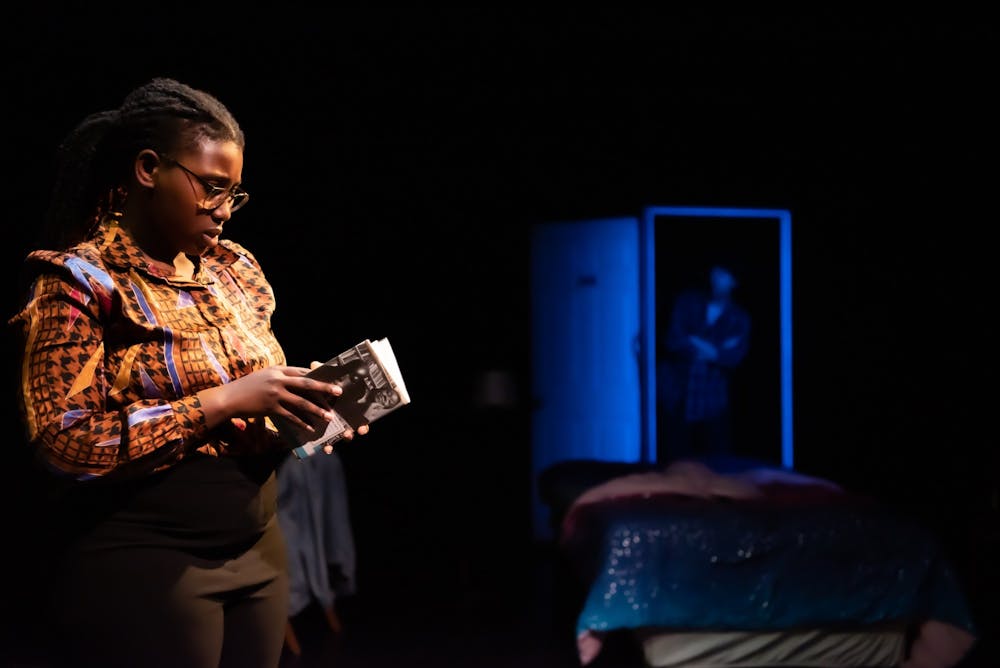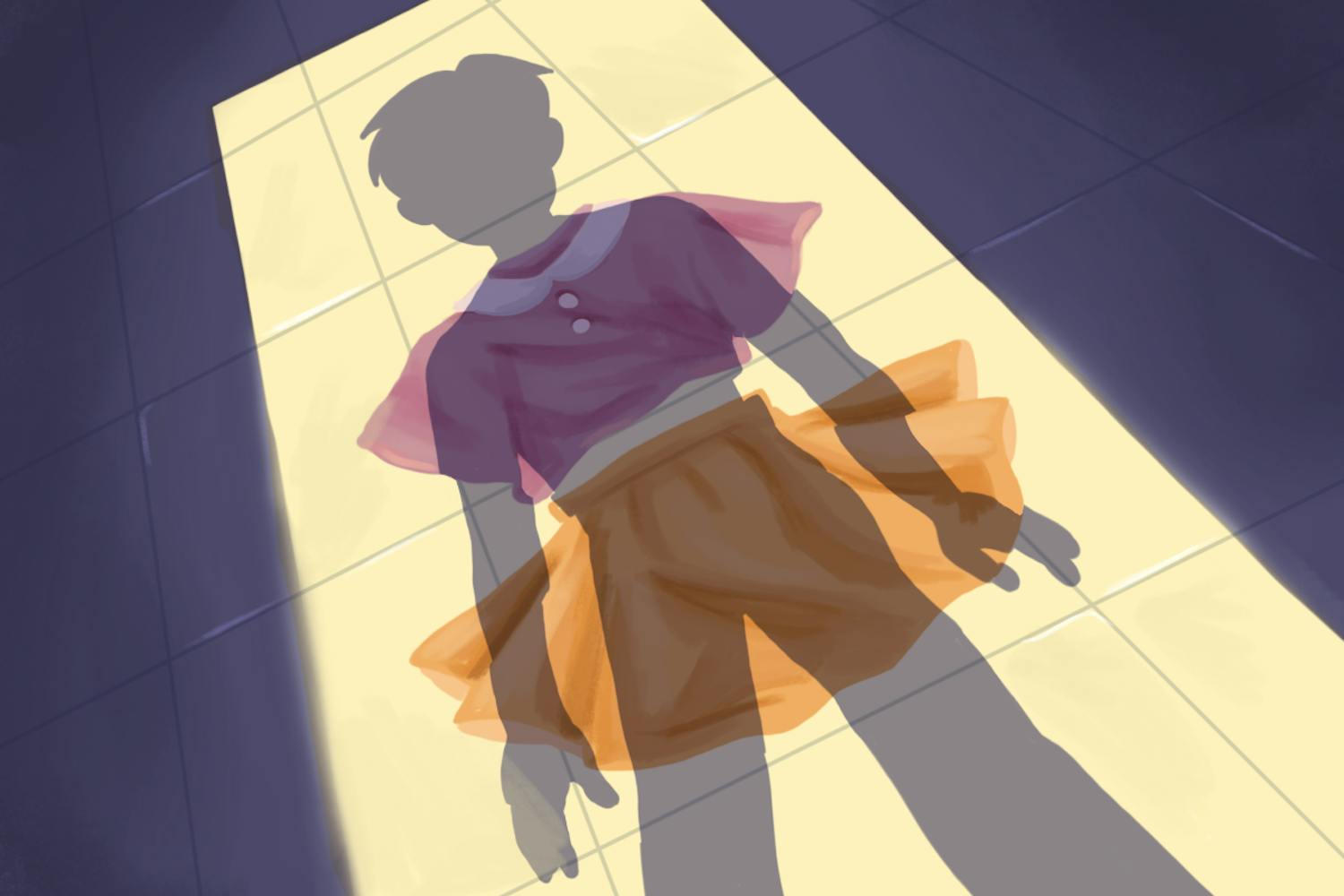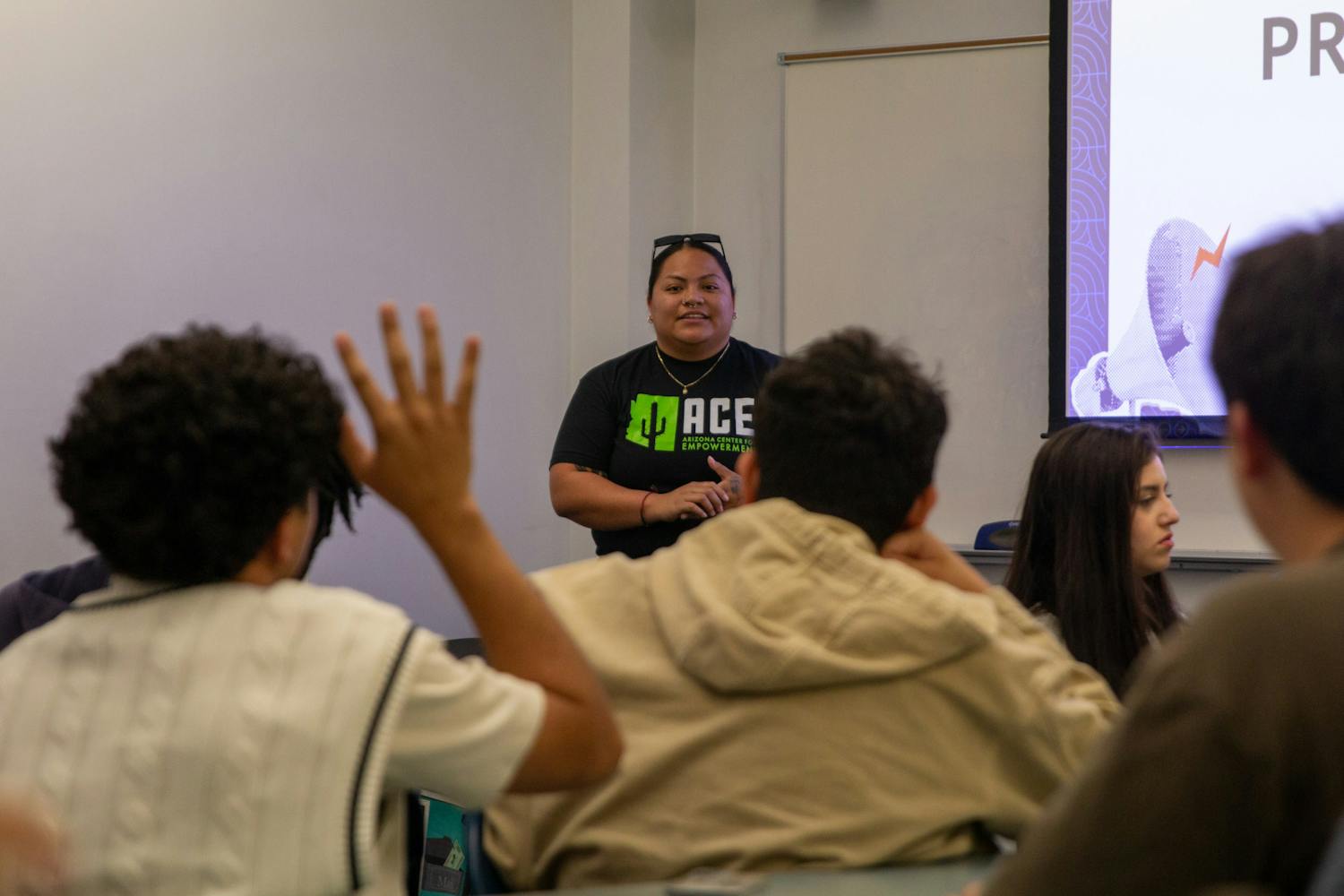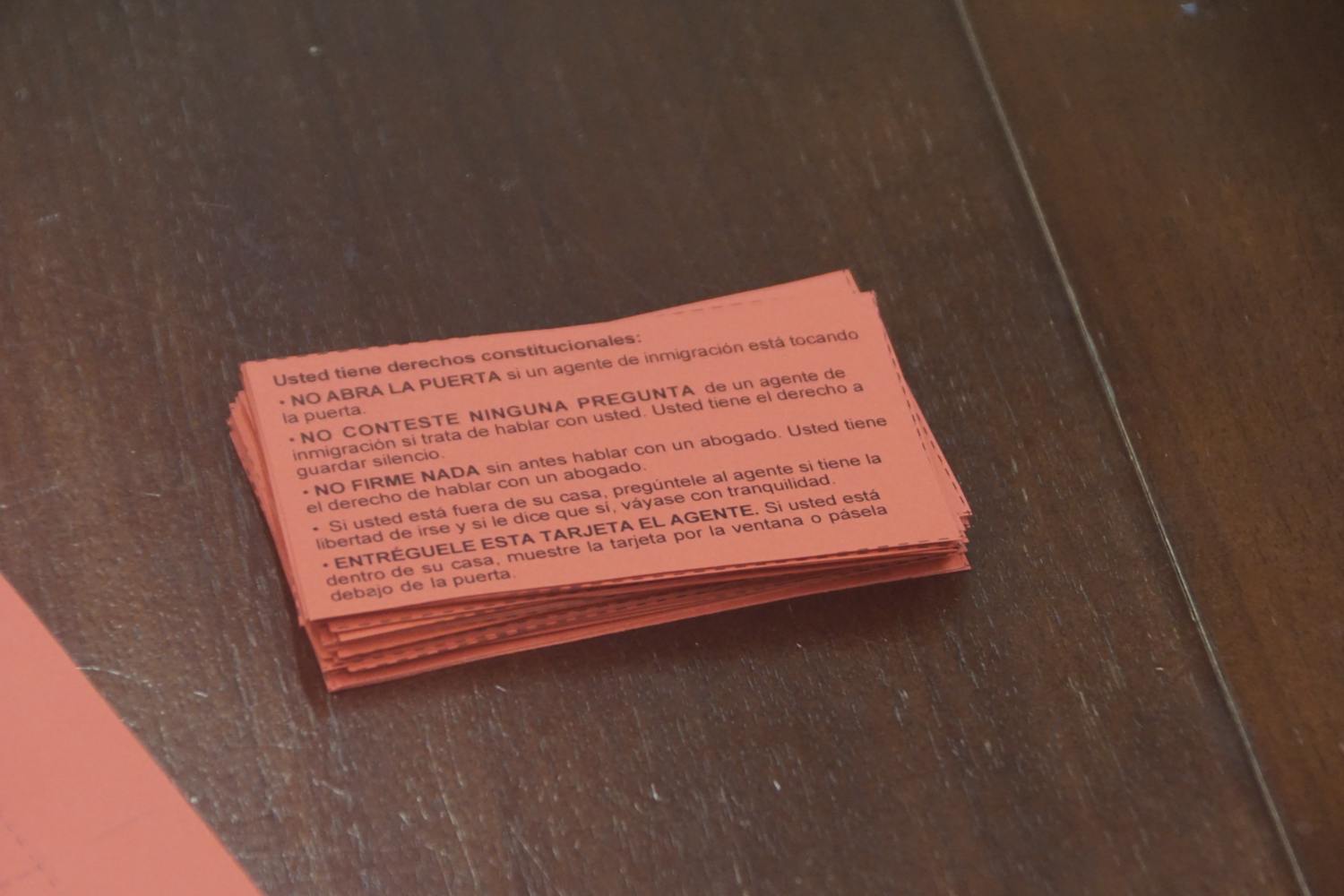Beginning last Friday, Feb. 17, the ASU Black Theatre Organization performed its first show "Pipeline" in the Nelson Fine Arts Center.
"Pipeline" follows the story of Nya, a teacher at a public school in Detroit, and her son Omari, a student at a nearby private school. Written by acclaimed playwright Dominique Morisseau, the play is about the challenge of studying and working within a school system that has discrimination heavily ingrained in its structure. As a result, its practices disproportionately push students of color toward the criminal justice system.
For director Crestcencia Ortiz-Barnett, a graduate student studying directing and a Ph.D. candidate in education at UA, the story of "Pipeline" isn't just impactful, it's personal.
"Frontbrook is the private school that the character, Omari, is going to, and his mother works at Chadsey High, which is a public school in southwest Detroit, where I'm from," Ortiz-Barnett said. "What is happening in these scenes are real things that are happening in the Detroit public school system."
Before it closed in 2009, Chadsey High School was populated by a majority of Black students. The school's closure was the result of a $303 million budget deficit. State-appointed officials closed over 25% of the 194 Detroit public schools and eliminated over 10% of its teaching positions to combat the deficit.
Historically, Detroit's public schools have implemented metal detectors and other security measures that contribute to the larger issue of the school-to-prison pipeline. It surprised Ortiz-Barnett to learn that not all public schools had the same level of security.
Ortiz-Barnett's hope was that the play would be a chance for other non-white students to see themselves and their lived experiences in the show's characters and story just as she had instead of forcing them into roles that weren't written for them.
Ortiz-Barnett founded the ASU Black Theatre Organization in the fall and is currently the president of the club.
"I created the organization to build a community for students of color in the theater department," Ortiz-Barnett said. "Which has grown into an amazing opportunity for all students who feel like they may not have a place."
While the BTO has a specific focus on issues affecting Black theater students, it welcomes all students, especially those belonging to other underrepresented communities.
With a more diverse cast and crew, however, information about the experience of students affected by the school-to-prison pipeline was critical, as not every member of the cast shared that knowledge before production began.
Benedicta Akley-Quarshie, a Ph.D. candidate in the theatre for youth and community program and vice president of the BTO, was given the specific job of managing that research.
"For my entire broadway degree I've been working extensively engaging with research in juvenile justice," Akley-Quarshie said. "So I was thrilled that (Pipeline) was going to be our first project."
Akley-Quarshie went on to explain that an important step in the theatrical process is a concept called dramaturgy, which emphasizes the importance of sociological context and identity in understanding the content of a play's story and the portrayal of its characters.
"You engage with the research on the main idea of a play," Akley-Quarshie said. "For example, the school-to-prison pipeline is a central theme of this playwright, so we have a whole dramaturgy team that conducted all this research that is available to the audience to engage with."
Much of the research done for "Pipeline" is on display in a separate room before and after each performance for the audience to view in their own time.
The play involves "issues I didn't know about because I'm not a person of color," said Sean Schuljak, a junior studying theater and fashion who plays Laurie, Nya's co-worker, in the show. "So it was super cool to be able to sit down and use all the facts."
The background information especially informed Schuljak of the emotion behind Laurie's character. In particular, her anger at the school administration.
At the beginning of production, Ortiz-Barnett brought the cast members together for a practice called SoulWork, which she learned while earning her undergraduate degree.
SoulWork is a method of artistic training rooted in Black American performance tradition that focuses on creating emotional availability between performers, easing them into being vulnerable with each other first instead of simply asking them to act. This often involves emotional exercises and games.
"I took a lot of time to do play, to play games … things that had historical relevance like hopscotch or double-dutch," said Ortiz-Barnett. "We just took a lot of time reflecting and giving our intentions before we actually got to the work."
"It was really beneficial because it wasn't like any professional production that just kinda throws you into a room with a whole bunch of people," said Jazmin Moehring, a senior studying theater who portrays Omari's girlfriend Jasmine in the show. "There's more of a purpose than just doing our jobs, and I feel like the SoulWork helped to bring us together."
"I've been at this school for three years, and it's very difficult for people of color to find community and feel safe and at home," Moehring continued. "So I'm so grateful to (Ortiz-Barnett) that she brought us all together and put on this production."
The BTO will continue to show "Pipeline" at the Nelson Fine Arts Center from Feb. 24 through Feb. 26. The show is free and open to the public.
Edited by Jasmine Kabiri, Reagan Priest, Sophia Balasubramanian and Anusha Natarajan.
Reach the reporter at cvandore@asu.edu and follow @cvandoren27 on Twitter.
Like The State Press on Facebook and follow @statepress on Twitter.

Claire van Doren is the Echo desk editor, using her English Literature and Journalism majors to bring insightful, thought-provoking pieces to The State Press. She has a deep love of storytelling that extends to articles, television, podcasts, and novels.




